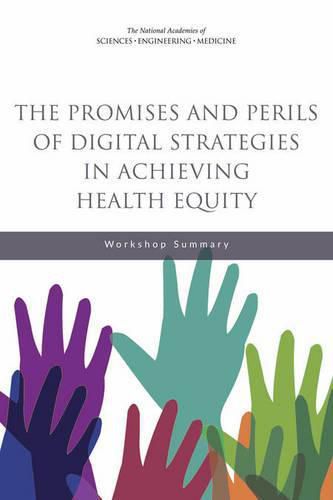Readings Newsletter
Become a Readings Member to make your shopping experience even easier.
Sign in or sign up for free!
You’re not far away from qualifying for FREE standard shipping within Australia
You’ve qualified for FREE standard shipping within Australia
The cart is loading…






Health care is in the midst of a dramatic transformation in the United States. Spurred by technological advances, economic imperatives, and governmental policies, information technologies are rapidly being applied to health care in an effort to improve access, enhance quality, and decrease costs. At the same time, the use of technologies by the consumers of health care is changing how people interact with the health care system and with health information.
These changes in health care have the potential both to exacerbate and to diminish the stark disparities in health and well-being that exist among population groups in the United States. If the benefits of technology flow disproportionately to those who already enjoy better coverage, use, and outcomes than disadvantaged groups, heath disparities could increase. But if technologies can be developed and implemented in such a way to improve access and enhance quality for the members of all groups, the ongoing transformation of health care could reduce the gaps among groups while improving health care for all.
To explore the potential for further insights into, and opportunities to address, disparities in underserved populations the National Academies of Sciences, Engineering, and Medicine held a workshop in October 2014. The workshop focused on (1) how communities are using digital health technologies to improve health outcomes for racial and ethnic minority populations, (2) how community engagement can improve access to high-quality health information for members of these groups, and (3) on models of successful technology-based strategies to reduce health disparities. This report summarizes the presentations and discussions at the workshop.
$9.00 standard shipping within Australia
FREE standard shipping within Australia for orders over $100.00
Express & International shipping calculated at checkout
Stock availability can be subject to change without notice. We recommend calling the shop or contacting our online team to check availability of low stock items. Please see our Shopping Online page for more details.
Health care is in the midst of a dramatic transformation in the United States. Spurred by technological advances, economic imperatives, and governmental policies, information technologies are rapidly being applied to health care in an effort to improve access, enhance quality, and decrease costs. At the same time, the use of technologies by the consumers of health care is changing how people interact with the health care system and with health information.
These changes in health care have the potential both to exacerbate and to diminish the stark disparities in health and well-being that exist among population groups in the United States. If the benefits of technology flow disproportionately to those who already enjoy better coverage, use, and outcomes than disadvantaged groups, heath disparities could increase. But if technologies can be developed and implemented in such a way to improve access and enhance quality for the members of all groups, the ongoing transformation of health care could reduce the gaps among groups while improving health care for all.
To explore the potential for further insights into, and opportunities to address, disparities in underserved populations the National Academies of Sciences, Engineering, and Medicine held a workshop in October 2014. The workshop focused on (1) how communities are using digital health technologies to improve health outcomes for racial and ethnic minority populations, (2) how community engagement can improve access to high-quality health information for members of these groups, and (3) on models of successful technology-based strategies to reduce health disparities. This report summarizes the presentations and discussions at the workshop.